‘My Cystic Acne Cleared Up After I Ended a Toxic Relationship. Dermatologists Explain Why’
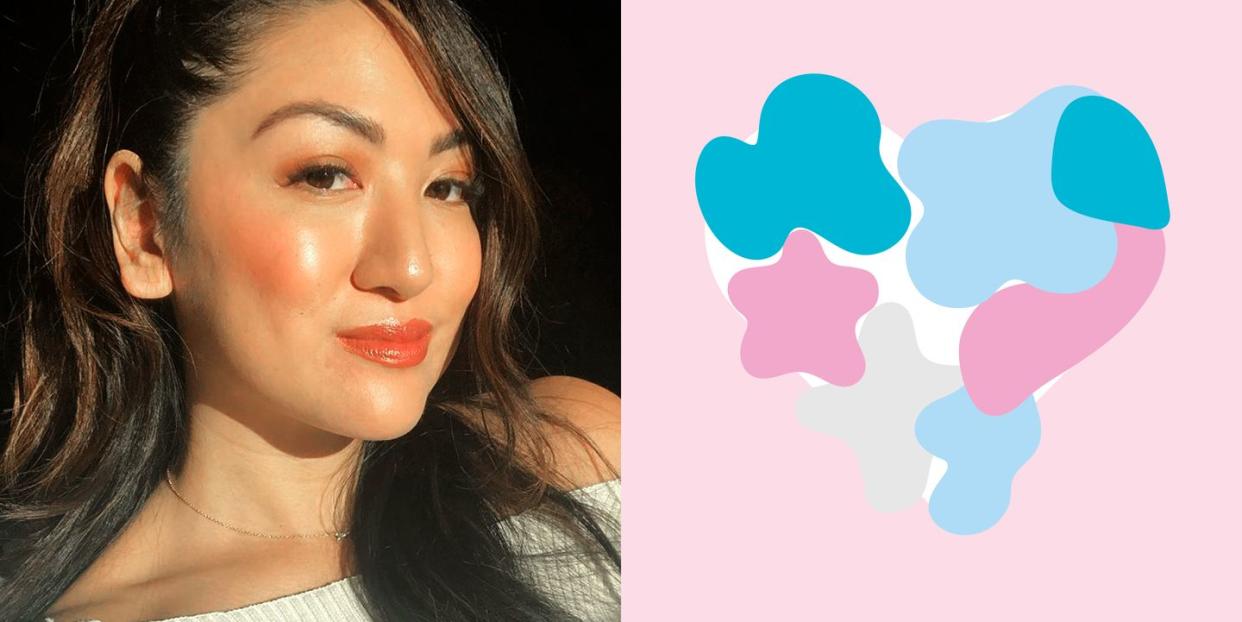
If you ever want to know how I’m doing, ask my skin. It doesn’t lie. In the days leading up to the worst breakup of my life, something terrible was brewing in my skin. “I’m fine! We’re fine!” I’d tell myself as a colony of tiny whiteheads formed en route to what was supposed to be our Hail Mary weekend getaway. We’d get into another fight. “I’m fine!” I’d keep repeating, as bulging cysts started growing. Then, in the span of 48 hours, I ended a four-year relationship, moved my life out of our shared apartment, found a friend’s couch to crash on, and showed up to work to shoot a video (on-camera, no less) like nothing happened.

As my life exploded, so did my skin: I woke up one morning and counted 22 stubborn, cystic pimples painfully residing on my chin and jawline. It was the worst I’d seen in my decade-long battle with acne. As if my self-esteem weren’t already knocked low, the helplessness and shame that came with the breakout made me feel as if I were trying to climb out of the bottom of a sinkhole.
Before
I immediately saw a dermatologist. I had every zit squashed with cortisol injections, and I started a regimen including prescription topicals and oral medicine. I expected it would take up to three months to see full results, but then something miraculous happened: In just two weeks out of my toxic relationship, I already started clearing up. Skin looked smoother and brighter. Breakouts flattened and paused.
The clear-up coincided with my efforts to lean more into self-love: I journaled, started training to run a marathon, spent more time with family and friends, and really took time to embrace joy and gratitude. While I’m convinced the 180 in my skin was a response to feeling lighter and freer, the skeptic in me suspected it was just a coincidence. Was it possible that a more positive outlook helped quell my zits? Or, had I succumbed to woo-woo thinking in my vulnerability?
After
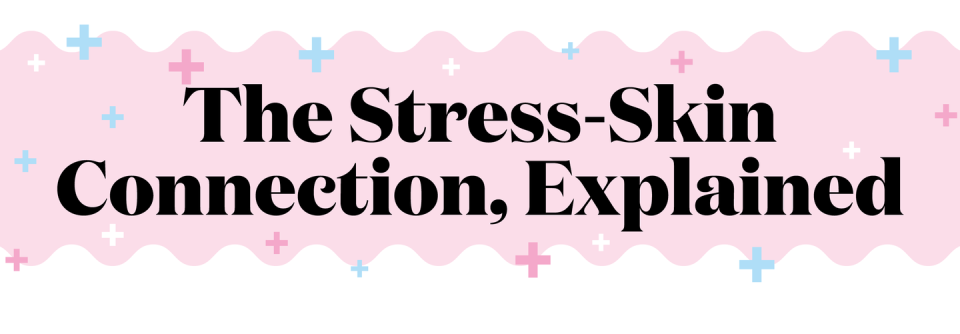
It seems I was on to something. “The skin is our largest organ. When there’s any sort of underlying struggle in your body, whether that’s a medical problem or a psychological problem, that will often manifest on the skin,” says Evan Rieder, MD, a NYU Langone dermatologist also board-certified in psychiatry. “For some people, having acne that’s scarring makes them psychologically distressed, depressed, or anxious. But it can work the other way too. Stressful life episodes can initiate and worsen an acne flare-up.”
Here’s more on how that mind-body connection works—and why my newfound self-love approach helped me (and my skin) calm down.
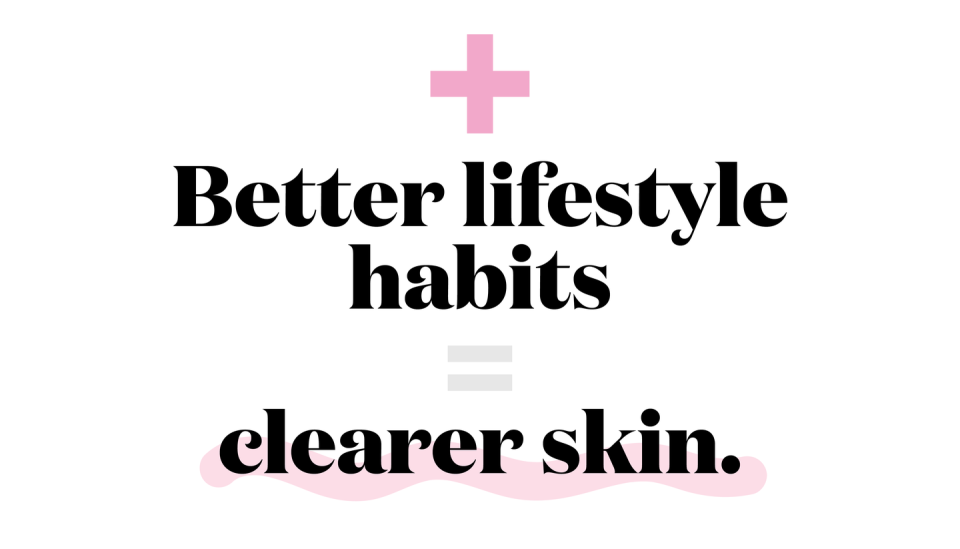
The causes of acne are multi- layered and include bacterial overgrowth, clogged pores, hormones, and genetics—but “there’s certainly a relationship between stress and skin,” says Dr. Rieder. For me, the bad breakup triggered stress, and the stress was exacerbated by the subsequent loss of sleep, lack of exercise, glasses of wine, and pints of ice cream I consumed in the days following. Bad move. It's key to have "a well-balanced diet without high glycemic products such as sweets, fried food, sodas, and dairy products" according to Jeanette Jacknin, MD, a San Diego-based holistic dermatologist.
That means after worst of it, when I started spending more time on myself, all the long distance running and at-home cooking really was working. "Stress can be reduced by many means—depending on what a patient enjoys and gets 'in the zone' with," On top of running, she recommends her patients try breathing exercises and yoga as well as adequate sleep (and let's just say I was sleeping much better post-breakup).
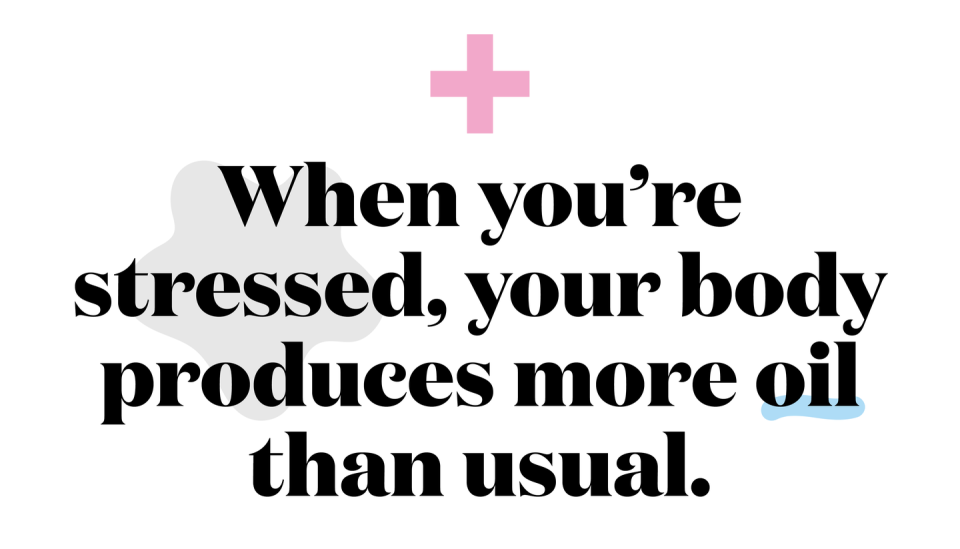
"Your skin is an extension of your nervous system," says Melissa K. Levin, MD, founder of Entière Dermatology in New York. Since skin can process physical signals like heat, cold, and pain, I wondered if it were possible those same sensory fibers can detect and react to emotional signals, too?
Yes, says Dr. Levin. The reason lies in the body's hypothalamic-pituitary-adrenal (HPA) axis. Think of it as the control center of your stress response: It will trigger the production of hormones like cortisol when the body senses stress. According to Dr. Levin, the skin has its own HPA system so it can be doubly triggered to produce hormones that cause a local inflammatory response. That can increase oil production and clog your pores—leading to the breakouts you hate. So. Freakin’. Much.
On top of that, Dr. Levin shares that studies have shown acne patients’ skin have more nerve fibers in their oil glands around pimples to detect a peptide called substance P. “The skin is more hypersensitive to these brain skin nerve receptors," she explains. "Your skin cells are more sensitive to circulating hormones." That includes one major culprit: cortisol.
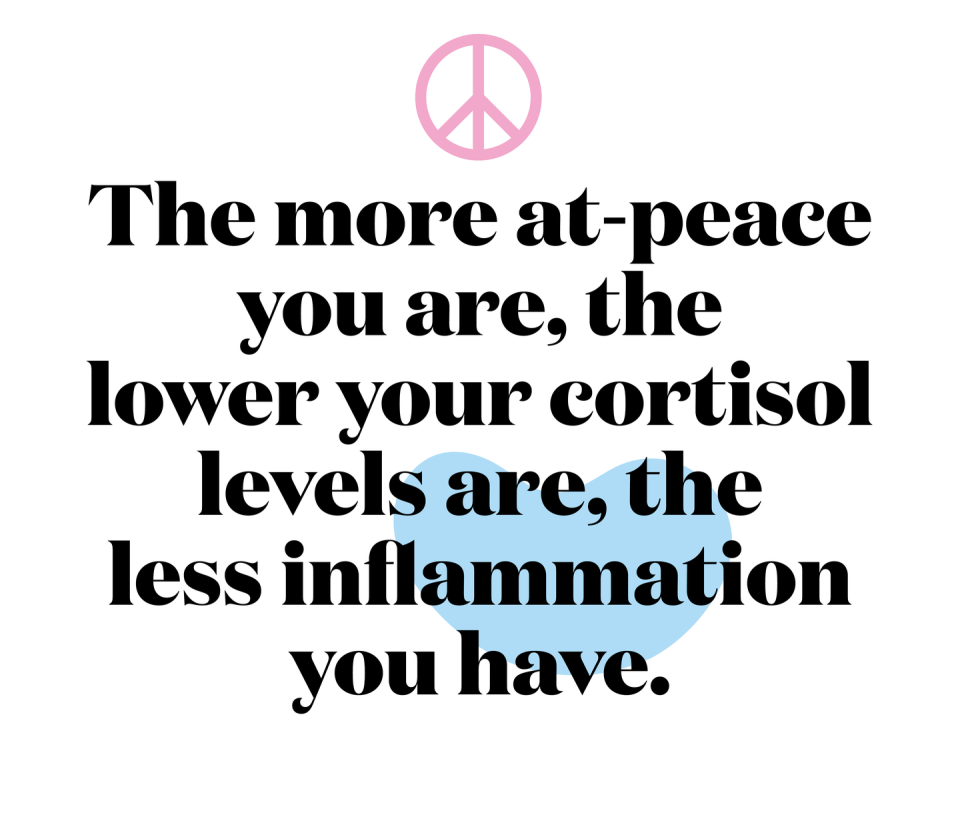
“Stress hormones like cortisol can cause whole systemic inflammation across the body—but also in your skin," Dr. Rieder says. "Cortisol also decreases your immunity and ability to fight infection so, theoretically, that can increase the load of bacteria in the body like C Acnes, which is the bacteria that’s essential for causing acne to come out.” Dr. Rieder adds that chronic stress can also enlarge the sebaceous glands, increasing overproduction of oil that clogs hair follicles and leads to more breakouts.
He adds that there are studies that have shown that when people are put under psychological stress and have wounds, the wounds heal more poorly—the same likely goes for breakouts. “The skin is a reflection of what’s going on in our underlying state, whether that be medical or emotional,” Dr Rieder says. “You have to think about things synergistically and holistically.”
Since experiencing my dramatic skin recovery, I've definitely believed in the power of a holistic approach to my acne. Yes, I rely on a really consistent skincare routine including topical treatments prescribed by my derm, but I've also regularly implemented the pieces of my post-breakout routine that helped me make internal changes, too. I run and try to exercise four to five times a week. I meditate in the mornings. I try to practice gratitude and patience with myself. Pimples happen, but my skin hasn't had as bad of a breakout since. Overall, I've been in a happier place. But, I don't need to tell you that. Just ask my skin.
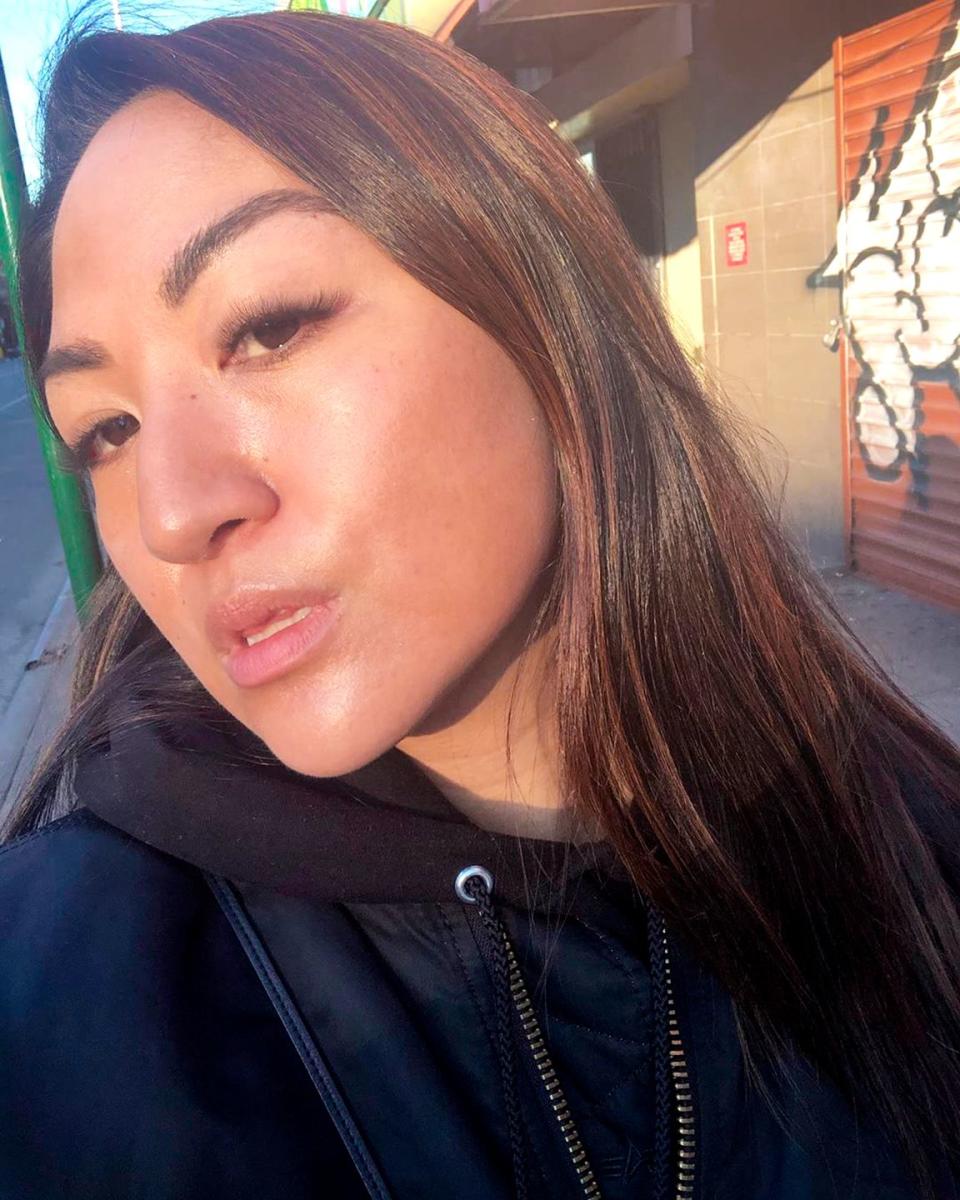
This article is part of Women's Health 2020 Acne Week. Click here for more.
You Might Also Like

